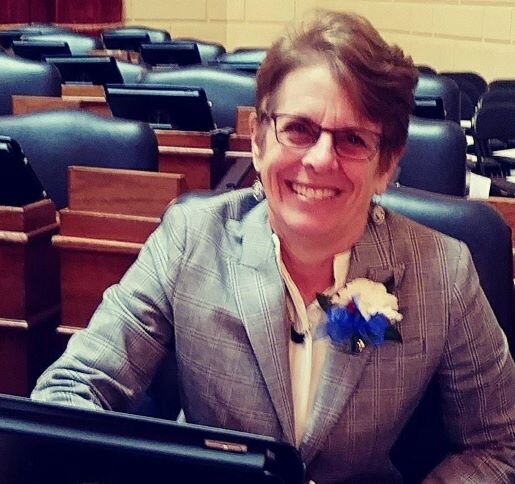By Gina Macris
A federal judge will retain jurisdiction over a civil rights consent decree until June 30, 2026 to ensure that a fully funded reorganized system of services has a positive impact on the lives of roughly 4,000 Rhode Island adults with intellectual and developmental disabilities (IDD).
The added oversight does not extend or revise the terms of the consent decree, signed in 2014, which requires that the state put into place all required components of an individualized, community-facing system of services for adults with IDD by June 30, 2024.
John J. McConnell Jr., Chief Judge of the U.S. District Court, labeled the additional two years of oversight an “addendum” to the consent decree in an Oct. 2 court order. He said that the oversight period will ensure that the funding, policies and a newadministrative framework required by the consent decree become firmly established.
In the court order, the judge also said that A. Anthony Antosh, an independent court monitor, will continue evaluating consent decree compliance until 2026.
At the same time, McConnell noted that he is stepping back from holding periodic public hearings on consent decree compliance but will be available should Antosh find reason for his intervention.
McConnell has been personally involved in overseeing the case since January, 2016.
More than two months ago, McConnell said that, despite the state’s “tremendous progress,” it was “abundantly clear that it will not be in compliance” on July 1, 2024, in terms of effecting positive changes in the lives of adults with IDD.
“Because we are able to recognize this a year in advance, the parties should get together with the monitor and negotiate an addendum to the consent decree to ensure substantial compliance at the quickest possible time,” McConnell said at a public hearing Aug. 1.
The monitor and lawyers for the state and the federal Department of Justice (DOJ) negotiated the addendum and met with McConnell privately a few days before the judge turned it into a court order.
A Decade Of Growing Pains
In 2014, Lincoln Chafee, then governor, signed a consent decree promising major changes for Rhode Island’s developmentally disabled population to settle a DOJ civil lawsuit alleging that the state’s segregated programs violated the Americans With Disabilities Act (ADA).
The state agreed to create a community-facing approach that put the needs of individuals at the center of thoughtful plans for employment and other services that enabled them to lead regular lives. The agreement is to expire June 30, 2024.
At the outset, the DOJ expected that a decade would be time enough for a new system of services to take hold and show results in the daily lives of the consent decree population. DOJ lawyers have testified that, in general, they want to see at least a year’s successful track record before they will sign off on an agreement like the consent decree.
The first six years of the consent decree in Rhode Island were marked by piecemeal changes, the largest being the shutdown of sheltered workshops. But the funding and the bureaucracy underpinning a segregated system remained.
Then the COVID-19 pandemic halted progress and decimated the already underfunded and unstable workforce of the private agencies that the state relies on to provide IDD services.
The slowdown in reform became so serious that the DOJ asked McConnell in 2021 to find the state in contempt and to levy heavy fines. That request ignited a pledge by the state to take a number of steps, including a review of the rates it pays private providers and an overhaul of regulations to promote individualized, community-based services.
Reforms Accelerate
In his Oct. 2 court order, McConnell reviews, in meticulous detail, the state’s progress in achieving the goals of the consent decree and the myriad actions still to be taken if the state is to meet the June 30, 2024 deadline.
In the past year, the state, working with the community, has done intensive and laudatory work to plan the components of the needed infrastructure for a new system, Antosh wrote in a commentary that accompanied the court order.
But the “majority of these plans have not yet been fully implemented,” he wrote, emphasizing the need for additional oversight in bold type. “The impact on outcomes and individual lives has just begun.”
Jobs: McConnell said the state has fulfilled Employment First policy requirements emphasizing competitive employment in the community and has met the number of job placements required in the consent decree.
The current budget provides for all those with IDD to get support in finding and keeping a job, as well as “discovery” activities and internships that help people with a limited variety of life experiences broaden their ideas about what kinds of work they might enjoy.
But not everyone can sign up today for those job-related supports. Making these services universally available is part of the implementation McConnell and Antosh said they want to see by next July 1.
The state, through legislative action, also has ended the sub-minimum wages that sheltered workshop employees and other adults with IDD were paid.
Not everybody in the IDD population wants a job. Those who want to opt out of job-seeking activities may do so through a “variance” process involving the monitor. About 100 people have taken advantage of it.
Assessing Needs: The state has created a new multi-step assessment designed to capture unique needs up front and provide funding accordingly. The old approach to assessment, based on a scripted questionnaire, assigned all 4000 persons with IDD into one of 20 funding categories that did not automatically provide for employment services.
Even though the needs of those with IDD remain relatively the same over a lifetime, individuals were sometimes recategorized into a lower funding level.
Other times, the assessment failed to capture medical or behavioral needs. In both cases, families and service providers were forced to file time-consuming appeals every year to secure and maintain added supports.
Critics said the assessment was being used to control the budget, not to serve persons with IDD. State officials have objected to those characterizations.
The new assessment keeps the original scripted interview, called the Supports Intensity Scale, adds a new questionnaire aimed at capturing supplemental needs, and finishes with an open-ended interview with individuals and families to ensure that nothing was missed in the first two sessions.
Not everyone has had the new assessment yet, but McConnell’s order says that the entire consent decree population must go through it by the end of June, 2024.
By that date, all members of the IDD population also must have access to an independent facilitator who will help them translate the assessment into an appropriate program of supports and services, McConnell said.
State Funding: Over the last three years, the state has spent total of about $120 million, more than half of it federal Medicaid dollars, to transform a system that incentivized the segregation of adults with developmental disabilities in sheltered workshops and day care centers.
The $120 million total includes $75 million in the fiscal year that began July 1 to fund a new rate structure that promotes employment in the community and other integrated activities, according to Antosh.
Community Experience: McConnell said 80 percent of the adults with IDD participate in community activities, but the state needs to ensure that everyone eligible has regular experience in the community by the time the two-year oversight period concludes.
Transitioning to Adult Services: The consent decree also protects high school students with IDD aging out of school into adult services. McConnell and the monitor said the state has made progress in laying the groundwork for a seamless transition from high school to adulthood, but more needs to be done.
For example, transition plans more focused on jobs and careers must be implemented by June 30, 2024. The number of work internships for high school students must increase, and the state must show that by their 20th birthdays, 80 percent of youth with IDD have applied for adult services, with assistance.
Implementation Science Guides Monitor
The process of societal change is slow, Antosh said, relying on implementation science to help put the consent decree in historical perspective.
Implementation science tracks the ways research translates into policies and practices in health and the social sciences and the long-term effect these changes have on the target population.
In a similar fashion, Antosh will be tracking the effect of the consent decree on Rhode Island’s IDD population, as shown in the graph above. It forms part of his commentary.
It took 25 years for the state to move from institutionalizing children and adults with IDD to a functioning community system in the early 2000s, as understanding grew that “individuals could have meaningful community lives and could be employed,” Antosh said.
In the first several years of the new century, Rhode Island gained a national reputation for having one of the best systems in the country.
“Then came several years of underfunding and decreasing services -a good system became significantly less so. This directly resulted in the Department of Justice investigation of Rhode Island and the Consent decree in 2014.” Antosh wrote.
Until the Rhode Island Consent decree was signed, the Integration Mandate of the Americans With Disabilities Act, reinforced by the 1999 Olmstead decision of the U.S. Supreme Court, was brought to bear in the courts to make the case that persons with disabilities are entitled to community-based living arrangements.
The consent decree was considered a landmark event because for the first time, it applied the Olmstead decision to what individuals with IDD did during their waking hours.
With Employment First at the heart of its mandate, the the consent decree assumes that all individuals can work and interact in the community, “not in groups, but as individuals who have preferences and can make choices,” Antosh said.
He said implementation science indicates that it takes 10 to 20 years to fully implement new practices and change expectations among the public.
But the consent decree is still in the “early stages” of implementation, making the need for additional oversight important in ensuring that new policies and practices take root and begin to have an impact on the community.
The monitor has made it clear that that successful implementation of the consent decree will depend on individuals with IDD reporting on positive changes in their own lives by the time the added two-year oversight period ends.
To read the entire court order, click here.
To read the monitor’s commentary, click here.
























